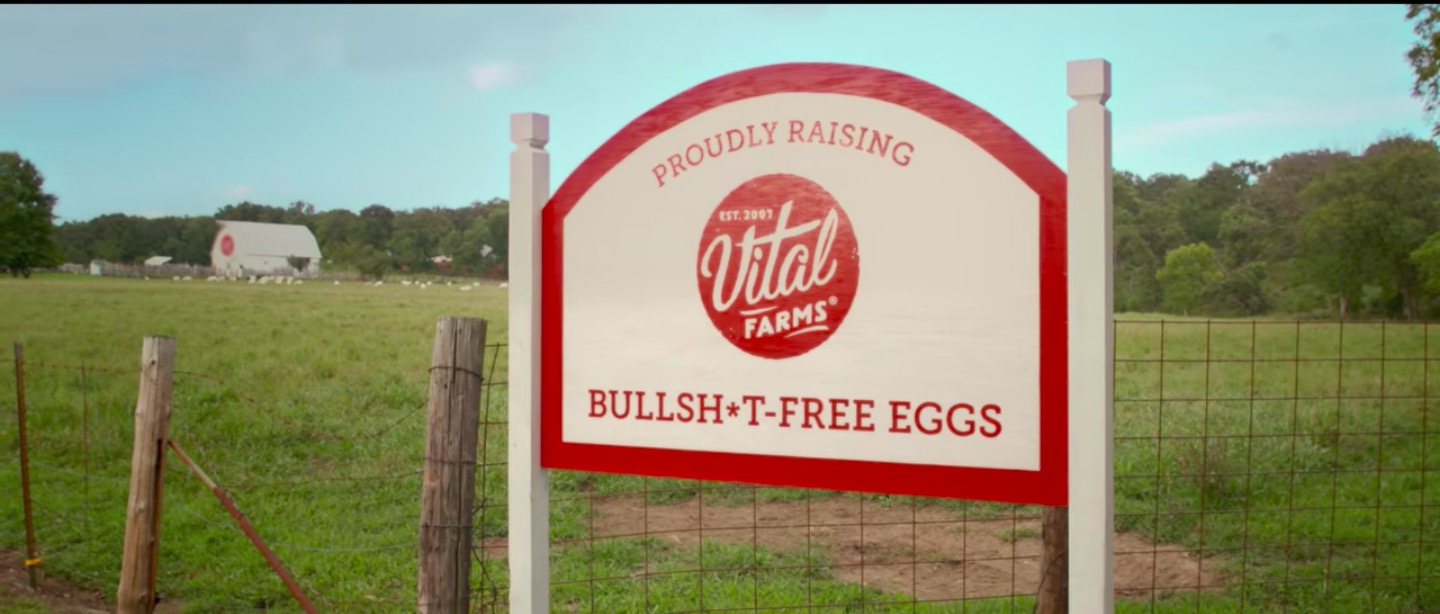When searching for eggs you have a couple of choices: conventional, organic, pasture-raised, and cage-free. However, do you know what the actual differences are? And do you know which one is better for the hen and in turn, for you and your family?
RELATED ARTICLE:
Enter Vital Farms.
In the company’s biggest marketing push in their 10-year history, they are answering those questions with their “Bullsh*t Free” campaign.
“The cage-free process, in which hens are said to have room to walk around (but how much varies), is believed to be more humane for hens than conventional egg production.
Such pledges to change to cage-free, which have come from other companies as well, ‘created more confusion for consumers,’ says Dan Brooks, director of brand communications at Vital Farms. Its latest survey, he says, found 92 percent of consumers didn’t understand a distinction between cage-free and pasture-raised eggs.” 1












